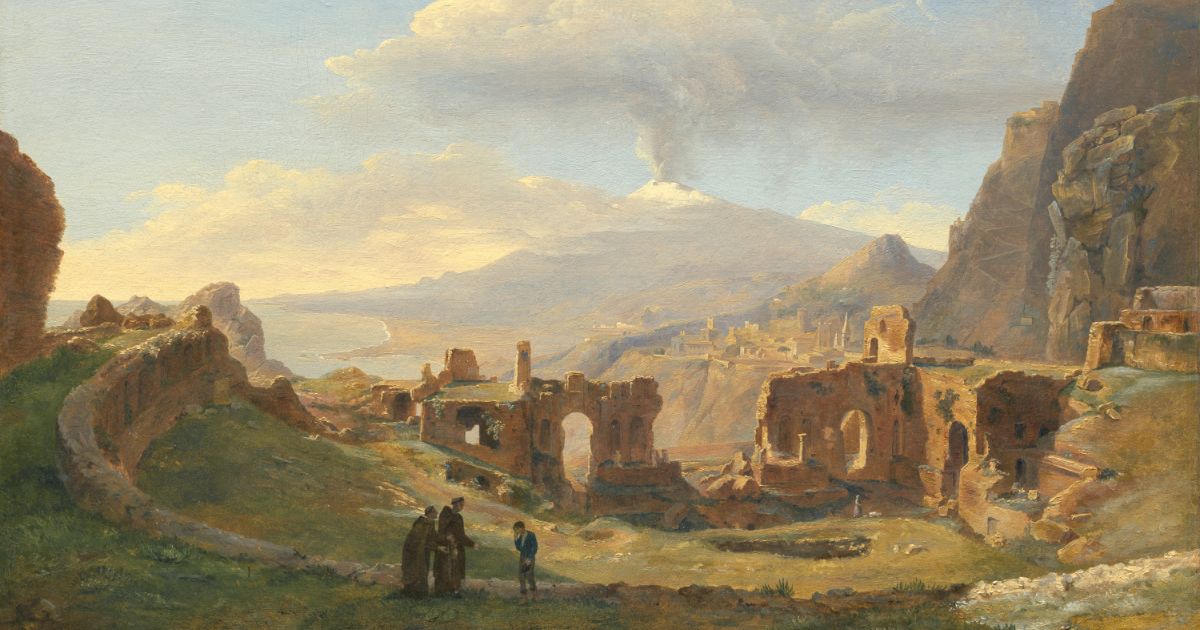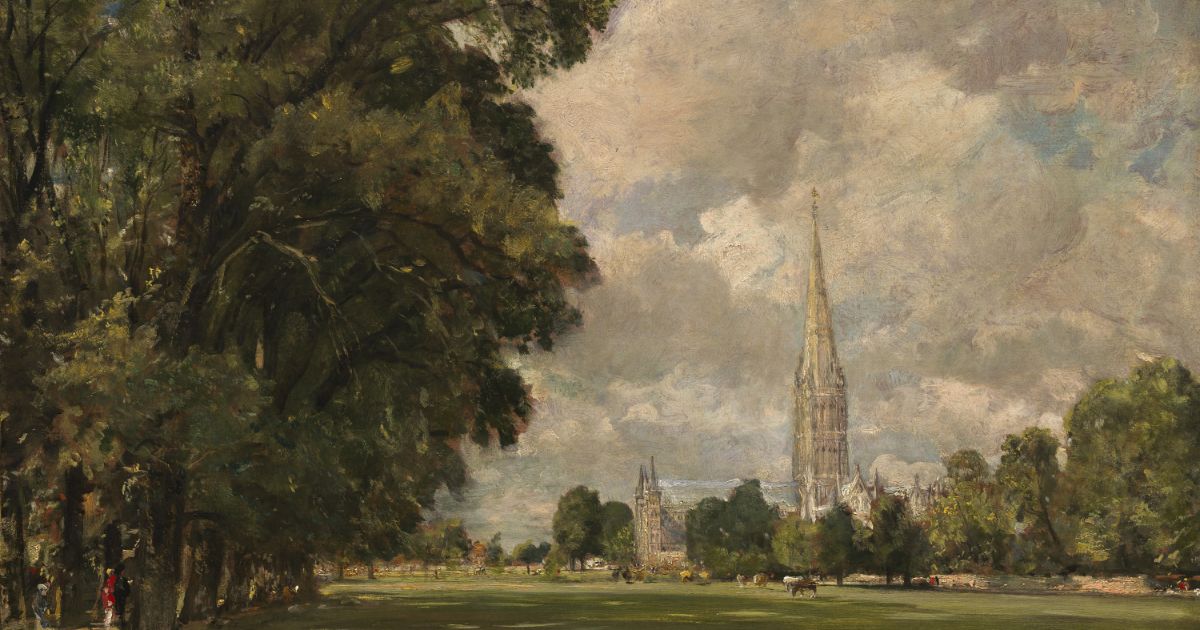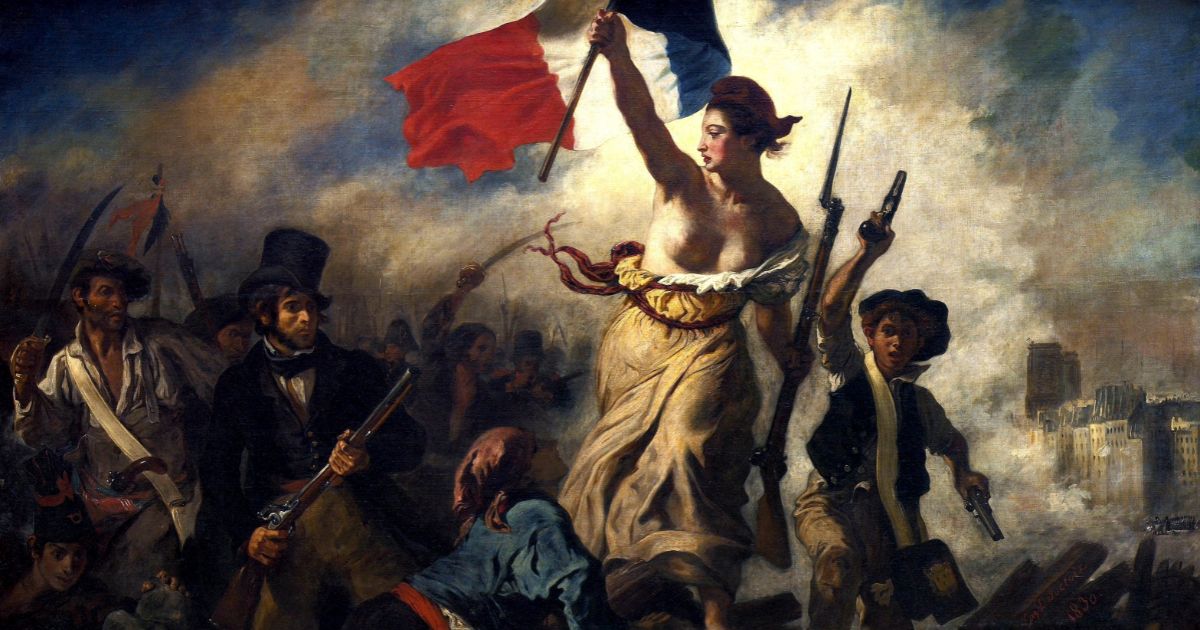Romanticism: Definition, History, Characteristics & Examples
Romanticism, a literary and artistic movement that emerged in the late 18th century, revolutionized the way we perceive art and literature. Romanticism's beauty lies in celebrating the individual, the power of the imagination, and the beauty of the natural world.
This article will explore with you the essence of Romanticism, offering a clear definition and tracing its historical origins. We'll find the answer to how this movement championed individualism, emotion, the sublime beauty of nature while also celebrating the imagination and the mystical.
What is Romanticism?

Romanticism is a historical concept. It has long been used as an ideological movement, a literary technique, and a literary genre. It emphasized individualism as well as emotion over reason and logic. In addition, Romanticism sublimes the beauty of nature, celebrating the power of the imagination and the expression of deep feelings. Romanticism sought to capture the awe-inspiring aspects of the world, focusing on personal experiences, the supernatural, and the idealization of the past, particularly the medieval era.
History of Romanticism

Romanticism flared up as a movement had to wait until the end of the 18th century to the 19th century, the 30s and 40s, first formed in Germany, then spread to England, France, Russia, etc. quickly developed into a literary movement throughout Europe, creating many authors and works of great influence. Romanticism in literary theory, Romanticism as a literary genre mainly refers to Romanticism in this period.
The most prosperous period of Romanticism was before and after the influential French bourgeois revolution - that time is from around the 90s of the 18th century to the 19th century's 30s. The brilliant development of Romanticism in this period was determined by the socio-political conditions at that time.
In 1789, the French bourgeoisie overthrew the feudal autocratic government, establishing the rule of the bourgeoisie, which gave rise to the bourgeois-democratic revolutionary movement and the national liberation movement throughout Europe. Along with this movement was the instability and chaos of social reality. The ideals of Enlightenment were destroyed, and deep disappointment spread throughout society.
Along with it, the desire for a truly ideal society also became the common social psychology, which led to the emergence of Romanticism. In addition, although the utopian socialist theory represented by Saint-Simon and Owen was not a scientific and complete theory, its typical social thought was the utopian desire for a truly liberated society, which also became the basis of Romanticism.
The formation of Romanticism is closely related to the philosophical thought in contemporary Europe. Classical German idealism is itself a romantic movement in the field of philosophy. The representative of subjective idealism Kant, Johann Fichte, put the human soul in the leading position in the creation of the objective world, emphasizing genius, emotion, and subjective dynamism. These things promote human dignity, awaken the nation, promote the desire, the thirst for independence and freedom, providing a theoretical basis for Romanticism in literature.
The formation of Romanticism also originated from historical experience and struggles within literature itself. Literature sympathized with 18th-century Englishism, the demand for the liberation of personality, advocated freedom of emotions, returned to the pure nature of Rousseau, emphasized personality, intense emotional nuances in the reform movement with representatives such as Goethe, research on tragedy, praise, and beauty of Kant, Schiele; the appreciation of art began by placing art in the historical development of Herder, Hegel, etc. all of which stimulated human thought, making human perception and understanding of art deeper, thereby requiring art to express great spirit and profound thoughts and emotions. All of these played an important role in the formation of Romanticism.
In addition, the previous classicism tended to be dogmatic and rigid, creating harsh rules for the freedom of expression of writers' thoughts, leading to strong opposition from some writers, which also promoted the birth of Romanticism.
Characteristics of Romanticism

The basic characteristic of Romanticism is the spirit of turning towards the ideal. Very different from the spirit of focusing on reality, looking straight at the truth, and being loyal to the reality of realism, Romanticism always turns towards and searches for the ideal with the spirit of surpassing reality, using subjective ideals to replace objective reality, devoting all its efforts to expressing a vision of life that people should have.
Schiller said that his works are "using beautiful ideals to replace lacking reality." George Sand said that his works are "feeling it is necessary to base my hope for humanity, to base my writing on what I believe humanity should have to write about it." German novelist Jean Paul said “If poetry is a prediction, then romantic poetry is a premonition of the future, greater than the tolerance of the human world. The flowers of Romanticism have drifted around us, just as before a new continent was discovered, just as a seed that we have never seen before was carried by the sea from America to the Norwegian coast.”
Romanticism does not seek the truth of life, the truth of details, but devotes all its efforts to expressing the ideal. As Michael in Queen Mab described a beautiful world with harmony, friendliness, equality - what the author wants to express is an ideal world. In a sense, Romanticism is more in line with the nature of literature, more satisfying the need to fight for freedom, strive for happiness, and seek human ideals.
Because it aims to express ideal social reality, the character image of Romanticism is also an ideal character image. For example, the kind and noble Quasimodo under the pen of V. Hugo; Jean Valjean, because of his human conscience, repeatedly disregarded danger to save people and repeatedly created miracles to turn danger into safety; Sun Wukong under the pen of Wu Cheng'en can ascend to heaven and descend to sea, see through demons, confront gods, chase goblins, summon wind and rain, do as he pleases... all are ideal character images.
Van Tieghem said about the ideal character image of Romanticism as follows: “Without grasping the situation more, comparing this type of literary image with the literary images of the past and present on the literary stage is not accurate…. it aims to awaken the approval and interest of the reader rather than to provide an object to imitate.”
The ideal life that Romanticism aims at, seeks and the ideal character in contemporary life do not exist, they all come from the subjective soul of the writer. Bielinxki said: “In the most essential, narrowest sense, Romanticism is the subjective inner world of man, the secret life of his soul. In the human heart and mind lies the secret source of Romanticism”.
Marilyn Butler - a British literary historian said: “Art viewed from the Romantic school is a lamp, the image that it shines does not originate from the world but from the poet. Art becomes the art of non-objective subjectivity, originating from intuitive feeling rather than from rational planning”.
The pioneer of French modern poetry Baudelaire commented: “Romanticism is neither a subject of selection nor is it accurate truth, but a way of feeling”. “They seek outside, but in fact only inside can one seek”.
Romanticism has a deeply subjective tone, focusing on the subject's ideal, emphasizing the conveying of subjective feelings, expressing subjective souls, and expressing subjective emotions of individuals.
French literary historian Ranson said: “The popular truth about the order of reason and the intelligence of the talent for reasoning and deep thinking are two things that romanticism does not care about. Psychology and science, the art of reasoning, precise methods, strict logic are not what Romanticism is interested in”.
Bielinxki, when discussing Schiller’s The Robbers, pointed out that The Robbers is like “a crude hymn about the lava fire that erupts from the energetic soul of youth”, “In this sentence, it is not the character but the author; in the whole work there is no authenticity of life, but the feeling is authentic, there is no reality, no drama but endless poetry, the situation is unreal, the plot is unnatural, but the feelings are real, the thoughts are profound; In short, the problem lies in this: we must not consider Schiller's The Robbers as a drama, as an expression of life, but as a long lyric poem in the form of a drama, a long, passionate, seething poem."
Because it emphasizes subjectivity, Romanticism when describing the inner life of a character often goes beyond the reflection of the objective world, the abundance of emotions becomes the nucleus, the subject of work, events, characters and character actions, language, and structure of the work can all be organized and arranged because the expression of emotions, the tone of compassion, sadness, agitation, haste even covers the entire text of the work.
The over-praise of nature is also a characteristic of Romanticism. In the history of development, human feelings for nature are products of the period of civilization, it is later than feelings for art. Greek literature is rich and valuable, Athenian art is also very splendid, but in the works of nations where drama and sculpture reached their peak, feelings for nature are not developed, so in Homer's epics there are very few descriptions of nature, nature is very little used in Greek drama.
"This natural world had to wait until the romanticism of the 19th century to have a rich and detailed exploitation. Byron, William Wordsworth, Goethe were the first to bring the great seas, long rivers, high mountains into their works" (Listowel: Commentary on the history of modern aesthetics). Romantic writers proposed the slogan “return to nature,” using it to express their indignation at the formation of urban culture and industrial culture in capitalist society and their desire to return to pure nature.
Romanticism exalted the magnificent scenery of great nature, taking great nature as the main object of expression, describing and praising the beauty of great nature, majestic mountains, vast seas, simple and quiet countryside scenery, the unique melody of foreign lands, all appeared under the pen of romantic writers. Moreover, this natural beauty was contrasted with the cruelty of reality.
In Byron’s Childe Harold, there was soft natural scenery in the southern Mediterranean, splendid scenery in Spain, majestic historical sites in Greece and Rome, creating a world of difference from the criminal circumstances of capitalism.
Intense imagination, especially exaggeration is the main expressive technique of Romanticism. To highlight the ideal and express subjective feelings, Romanticism also has its characteristics in artistic expression techniques and artistic forms. It uses unusually exaggerated artistic expression techniques and intense imagination, taking the plot beyond reality, rich nuances, beautiful language, combining historical legends, myths, natural wonders, strange landscapes, etc. to organize an extraordinary ideal world.
The human world, fairyland, heaven and hell, fairies and demons, rain, wind, thunder, lightning, plants, flowers, animals, insects, etc. can all be freely controlled by Romantic writers. The setting can constantly change, and the space can be comfortably extended.
In Goethe's Faust, the story's setting ranges from a cramped study to a bright citadel and then to a splendid gate. Its plot also includes time studying, the time of making a deal with the devil, the time of having love with a city girl, the time of receiving much corruption from the royal court, the time of going to the seashore to plan to reform nature, and finally the angels supporting Faust's soul to fly into the sky.
Skilltrans offers the top course to help you dive into this topic. Please click on the course name below to learn more:
Travel Writing: How to become a Travel Writer
The Topics Covered: Editing and Pitching, how to approach editors, improving your creativity, ending procrastination, photography, how to conduct yourself as a travel writer, media and press trips, about starting local and starting small, the mistakes that travel writers make and how to avoid them, how to take notes, what to do with them and how to avoid misunderstandings, and the opinions of various professional writers including: Melinda Joe, Joan D. Bailey, and Steve Gillick.
Conclusion
Romanticism stands as a defining moment in the evolution of artistic and literary expression, marking a shift towards emotion, imagination, and the celebration of the individual. By challenging the rationalism of the Enlightenment and embracing the beauty and mystery of nature, Romanticism reshaped cultural landscapes and inspired generations of artists, writers, and thinkers. Its legacy is evident in the enduring impact it has had on various forms of creative expression, reminding us of the power of emotion and the importance of personal experience in understanding the world.
You can sign up for Skilltrans courses to learn more about these concepts. We have a variety of courses that can help you further your knowledge.

Meet Hoang Duyen, an experienced SEO Specialist with a proven track record in driving organic growth and boosting online visibility. She has honed her skills in keyword research, on-page optimization, and technical SEO. Her expertise lies in crafting data-driven strategies that not only improve search engine rankings but also deliver tangible results for businesses.



